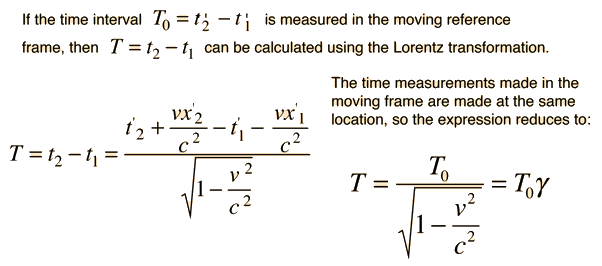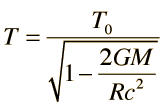Movies Part 1: Ex Machina and Primer, Safety Not Guaranteed
This blog is not a movie review blog or even a book review blog or even a story review or magazine review blog. That’s not its purpose. This blog is about reading and writing. You will notice that many of the posts found on this blog are about art, science, mathematics, poetry as well as science fiction and fantasy. This blog is about what I like to read and write. I’ve tried to stay away from technical language and difficult to understand mathematics. I don’t always succeed.
However, this post is going to break with that vision because I just watched three very good science fiction movies on topics near and dear to my heart. Ex Machina is all about software and hardware, more specifically artificial intelligence and robotics. Those of you that know me also know that I am not a hardware guy. I’m a software guy. I’ve lived and breathed software since I quit my paper route. (No ordinary paper route, by the way.)
I devoted my life to the pursuit and understanding of both natural intelligence and artificial intelligence. Specifically, I have done work on consciousness and cognition, processing models of memory and language, theoretical syntax and semantics, with a brief time playing around with phonology and phonetics. So, I had very high hopes for Ex Machina.
As a young child, I loved the novel the Man who Folded Himself by David Gerrold. And Primer, at some very basic level, reminds me of that novel.
Both of these movies were low budget. (I can hear, in my imagination, the creators of Primer laughing their heads off. They probably wish they had had one month’s budget of Ex Machina and one tenth of the studio time these lucky sons of guns got and deserved.) So some allowances have to be made and a lot of eye squinting is needed.
First, let me say that the special effects of Ex Machina were superb as was the acting, set design and camera work. The DP was a genius. The editing was fantastic. Primer had practically no special effects and the one that they did do could not be seen against the actors white/blue shirt. The acting was decent. The set design was barebones. The camera work raw and the editing good. However, Primer was one of the best time travel movies I have ever seen. Like the shadows under the sleds in the original production of Star Wars, the rawness worked for the movie and worked well.
I found the story in Primer to be confusing. The plotting at times was a little intertwined and involved but that also worked for the movie. After all, it is a time travel movie, of course the timeline of the plot is going to look like spaghetti. Amazingly enough, continuity was good for a low budget time travel movie.
(Spoiler Alert. Skip this paragraph if you have not seen the movie Safety Not Guaranteed.) Now compare this to Safety Not Guaranteed, about a guy who puts an ad in the paper for a time traveling partner. In Safety Not Guaranteed one never knows what is real and what is fake until the end. And even at the end, one has to wonder if they really traveled in time or simply disintegrated. More on this movie later. Since the science was not the centerpiece of the movie and was only hinted at, there isn’t much to say about it except, “A laser.” After all, it is a comedy.
The reason I loved Primer, besides its gritty nature and its in the face time travel, was the scientific premise. They were trying to build an anti-gravity device. A device that affected the gravity and therefore the weight of a payload. (This is where they make their biggest faux pas. In the movie, they say that the object’s mass, the Weeble’s mass was decreasing, which is wrong. It wasn’t the mass that was decreasing but rather the weight of the mass in a gravity well. mass equals Force divided by acceleration. m = F/a.) (Sorry, folks, you can’t skip the math in this post.)
I have been playing with the notion of time dilation. A clock in a moving frame will be seen to be running slowly, or dilated according to the Lorentz transformation. The time will always be shortest as measured in its rest frame.

A clock in a gravitational field runs more slowly according to the gravitational time dilation relationship from general relativity:

Thus the faster you are going the slower time flows or the heavier the gravity the slower time goes. The reason that time slows in gravity is very similar to the Bernoulli principle but in reverse, (don’t get excited, this is a metaphor,) because the speed of light is constant. Because gravity bends space-time and because the speed of light is constant, time must slow down in order for light to travel the greater distance around the bend. In other words, because gravity bends space-time, it elongates space, causing the light to have to travel father and because you are actually bending both space and time, it takes longer but only from the reference frame of an outside observer. Basically, gravity is stretching both space and time. Time is, after all, just geometry. Click here and read this Quora post for a beautiful explanation. Read at least three different responses in the Quora post for detail on gravitational time dilation.
For the person in the moving frame or the higher gravity frame, time does not appear to slow down. It is only in comparison to another frame of reference, and by comparing clocks, that one notices the difference in the march of time. Click here for a video explanation.
By the way, a science fiction story was written about this. A starship cruise line sold tickets with the advertising gimmick that your orgasms would be an hour long. (I forget who wrote it.) Of course, on the ship the people having the orgasm experienced it in normal time but to a person on Earth, it looked as if the orgasms were an hour long. Customers felt that they had gotten cheated. This was a very interesting subplot or sub-theme wound throughout the story.
If we have a velocity of c, the speed of light, time goes to infinity. If we have a velocity greater than c, we get the square root of a negative number. In other words, our time component becomes imaginary.
Now, in the Lorentz invariant theory, the same formulas that apply to ordinary matter, bradyons, apply to tachyons, the faster than light particles. This means that the energy-momentum relation holds:

(where p is the relativistic momentum of the braydon and m is its mass.) The formula for the total energy of the particle still applies.

If you will notice, if v is greater than then the denominator becomes imaginary and this means that m, the mass, of the particle must also be imaginary in order for the total energy of the tachyon to be real. According to the formula, as the energy decreases, the speed of the particle increases. Also note, that just like it’s real counterpart, the bradyon, c is a barrier for the tachyon. Tachyons can never go just the speed of light but only faster than light. This would also mean that the tachyon would move backwards in time because the result would be negative. For the math, click here to read about the tachyon anti-telephone.
Now for the speculative part pertaining to the movie Primer. What happens if rather than increasing gravity we decreased gravity? By analogy to the faster than light tachyon, and this is not speculation but rather just wishful thinking, the anti-gravity would not slow down time but send it backwards. However, if you look at the math, the formula does not allow one to simply plug in a negative number whether it is velocity or gravity or mass. Because in the first set of time dilation equations, the velocity is squared and will always be positive. In the gravitational time dilation equations, you are subtracting from one. And if you subtract a negative number it is like adding a positive number. (1 – -1 = 2) Time would speed up. Thus, anti-gravity is not going to cause time to move backwards. In the movie, time is also looping. This is Gödel’s solution to the General Relativity equations, which allows, well, actually insists that there are closed timelike curves. (Timelike as opposed to space like.) So this is a possibility though highly unlikely. Click here and here for more information.
However, if we look at the math, if the gravity and mass of an object, like say a black hole, becomes so great then conceivably we will be taking the square root of an imaginary number. So, what happens, then, inside a black hole? Does time go backwards? Since I’ve never been inside a black hole, I don’t know. But then for T to come out real, T0 would have to be imaginary. Mostly likely, the relativistic equations and perhaps the laws of physics itself in this universe would break down.
If you are confused, just watch this very instructional video, click here.
(Spoiler: Don’t read this next paragraph if you haven’t seen Ex Machina! Say, “Good-bye,” watch the movie and I’ll see you in my next post.) The writing in Ex Machina was good. The plotting was strong and straightforward and the half twist at the end of the movie, while not a complete surprise, was interesting. However, I am going to stop here and continue my train of thought in my next blog post. I want to include in my follow-on post the movies Robot and Frank and Loopers and I have not watched them yet.

4 Comments
Warning: Undefined array key 180 in /home/www_markim/markvincentlapolla.com/html/mvc/themes/mvlapolla/functions.php on line 327
Jeff N says:
Re time dilation, gravity: I’ve always wondered…who’s to say the universe isn’t in the midst of a headlong tumble into a black hole? From outside such an event would happen relatively quickly, I suppose…but from inside, if time itself slowed along with the immensely increased gravitation, could our perception just go along with that dilation…so we wouldn’t notice the difference? And what if that slowing is asymptotic…such that within the universe, the time just keeps slowing…so that to the universe, time would seem eternal?
Warning: Undefined array key 180 in /home/www_markim/markvincentlapolla.com/html/mvc/themes/mvlapolla/functions.php on line 327
Mark LaPolla says:
We actually may be traveling backwards in time right now but our brains order the events as if we were progressing forward in time. I can’t vouch for the whole universe but we, our galaxy, are on a collision course with a nebula and I believe a monster blackhole. But yes, if we stayed outsides the event horizon tides, then we would not know that time were slowed down. In order to perceive a slowdown in time, you have to have another frame of reference to compare it with. Within a frame, you would not know if time slowed down. That’s the beauty of special relativity. However, by the time you got close enough to a balckhole the gravitational tides would rip you apart. Just think of the tides and the moon, your body and blood is the earth and the oceans. In other words, you’d head would be closer to the blackhole and you’d be stretch to spaghetti. I’m trying to find out if it were possible that time would go in reverse inside a blackhole. I think that is one result of the equations. However, I think the equations just break down at those extremes.
And here I thought you’d be more interested in my critique of the movie. 😉
Warning: Undefined array key 180 in /home/www_markim/markvincentlapolla.com/html/mvc/themes/mvlapolla/functions.php on line 327
Jim Gleason says:
The 3rd paragraph made think to tell you that my sister (Dr. Cheryl G. Howard, Falls Church, VA) earned her doctorate working with AI. An early (1990’s), pre-doctoral piece she wrote (i.e., something I could follow pretty easily) was on a project called ALIAS and dealt with the role of pattern recognition in an AI’s learning. She’s obviously gone well beyond this in the 15 years or so since she earned her doctorate. I know she’s also been long involved with the neural activity affecting vision and the brain’s processing of that input.
Warning: Undefined array key 180 in /home/www_markim/markvincentlapolla.com/html/mvc/themes/mvlapolla/functions.php on line 327
Mark LaPolla says:
During my brief stint in Machine Learning (ML), the new idea was that tabula rasa was useless. ML spent years trying to learn with a blank slate. So, during the 80s, we concentrated on modeling and fill those models with knowledge a la Doug Lenat and AM. As a matter of fact, I was involved in a project to recreate AM. It, of course, never worked. In the meantime, Lenat was deeply involved with knowledge modeling and using undergraduate students to input data into a model. I will talk more about this in my next post which will concentrate on AI and Ex Machina and what I liked and did not like about it.
I also did some work on pre-attentive vision and data processing with respect to consciousness and cognition. I will be posting about this in a few weeks when I review the Passive Frame Theory of Consciousness.